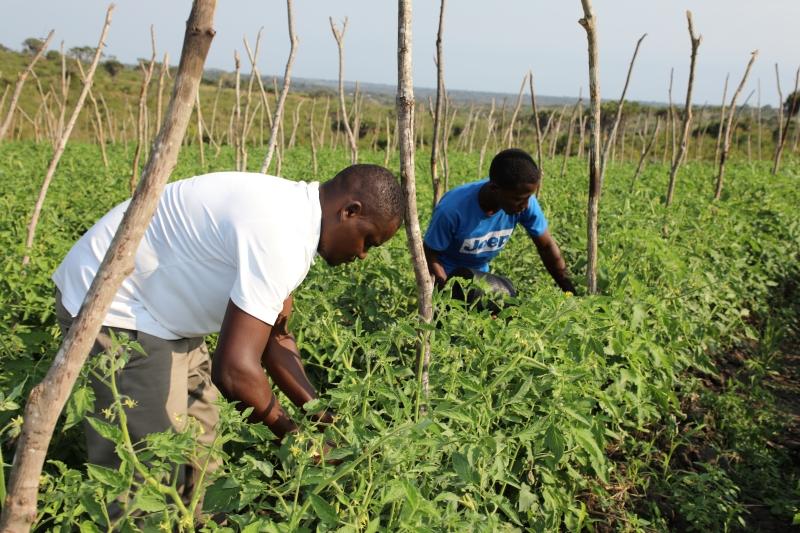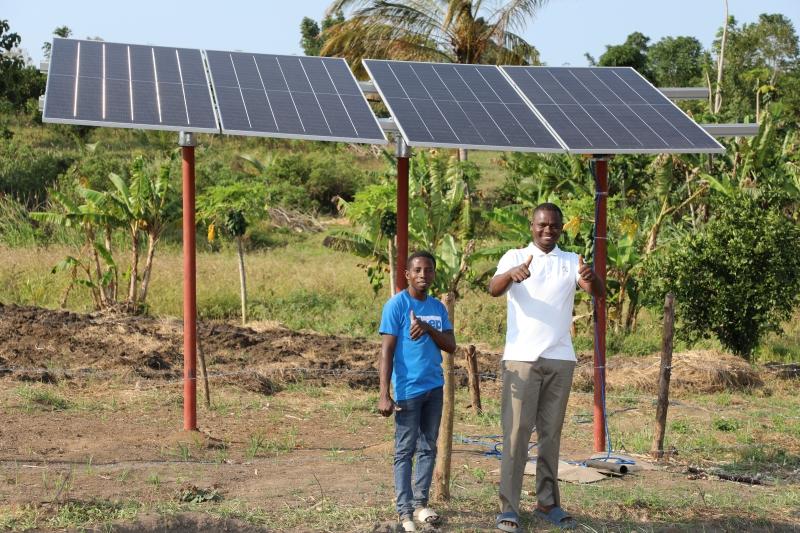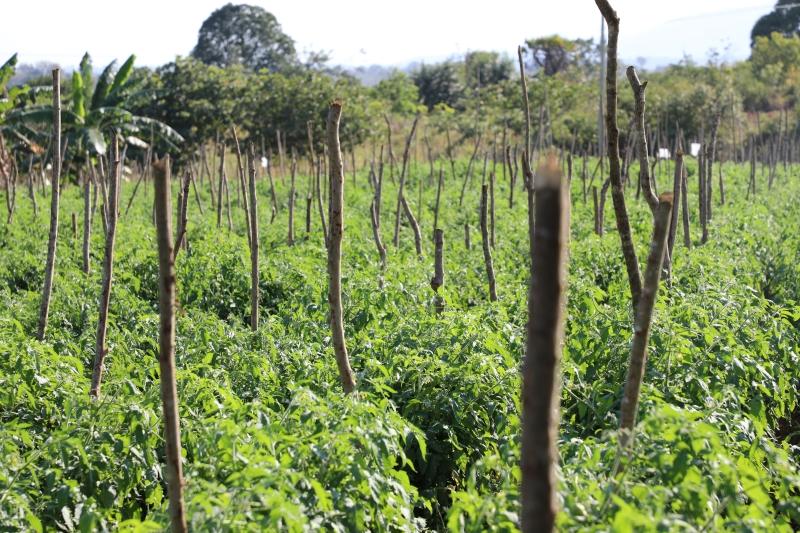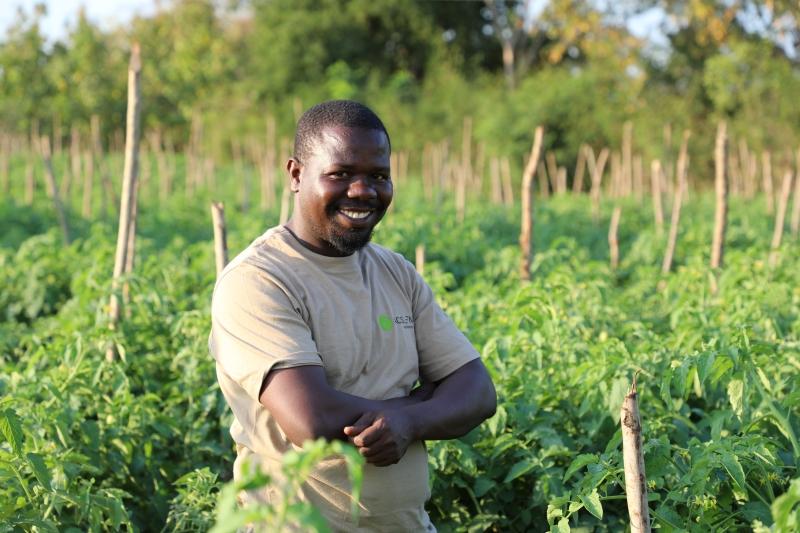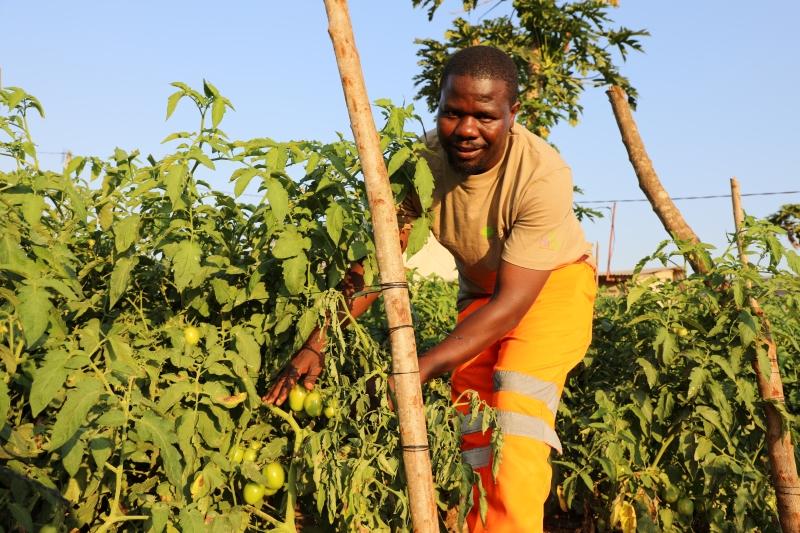Tanzania: Enabel catalyses commercializing vegetable growing in Tanga
Tanga, a
serene town of nearly 400,000 on the eastern coast of Tanzania, boasts a
youthful population, re-emerging harbour and the East African Pipeline to
Uganda. Arable land envelops the city, but it has not been fully put to work.
Farmers
grow fruits and food crops on small farms, mingled with patches of vegetable
growers.
In Tanzania, most small and medium scale enterprises are in agriculture, and they contribute 27percent to the DGP, according to The Tanzania Development Vision (TDV) 2025.
But they
contend with weak business development services, limited
access to capital and high informality.
“I’m a
health professional that love farming, but I have struggled all along,” says
Modest Massawe, vegetable grower in Pongwe ward in Tanga city.
Like many farmers,
he used to invest inputs in the field, without proper insight of market
dynamics. Additionally, limited knowledge of proper inputs such as seed
varieties, pests, and diseases led to recurring low returns.
For
instance, he used to water his tomatoes by carrying pails of water; upgrading
to a diesel pump relieved him from carrying water with his hands, but the pump
gushed the expensively pumped water excessively, depleting the water source
prematurely and helping weeds to sprout.
“I had to
spend up to 10,000/- a day on fuel,” he recalls.
This is
bound to change, as farming, especially vegetable growing in urban Tanga orients itself to profit making, and become attractive to youthful farmers, thirsting to progress.
Under its
SASA Program, the European Union, funds the Inclu-cities project that is
catalysing growth of businesses in the food systems in Tanga. Enabel Tanzania,
the main implementor of the Inclu-cities collaborates with Rikolto East Africa
to execute the food system initiative.
In
collaboration with the Tanga city, Inclu-cities spearheaded collaboration of the stakeholders in the food
system to transform subsistence small holders into commercial vegetable growers,
mindful of the environment and food safety. Early results foretell lasting
impact.
“Inclucities
business-oriented approach to development initiative is proving impactful
because each stakeholder involved has seen an opportunity to make profit,” says
Kikolo Mwakasungula, Inclu-cities Project Manager.
Farmers from
Pongwe, Maweni and Amboni wards participated in a training that Inclu-cities organised
to impart knowledge and skills about looking for markets, networking with input
suppliers and improving productivity in growing vegetables.
“We designated
a number of farmers as lead farmer that will be coaching their fellows and facilitate
collaboration, learning and networking with other stakeholders for the interest
of farmers,” said Eliud Dotto, Rikolto’s Field Officer in Tanga.
The lead
farmers, including Massawe and James Kapalata in Pongwe and Maweni wards
respectively, actively work with more than 300 farmers, helping them benefit
from growing vegetables.
In Maweni
ward for example, Chote Vegetable Producers Association started after the
Inclu-cities training. With more than 40 active members, the group organises
learning events in their plots, where up to 70 farmers participate.
Kange
Mchicha, another group in Maweni was strengthened with a leadership, training
and networking with input suppliers through the project.
Personally,
Massawe has evolved and transformed from an ambitious less informed farmer
contending with losses to an informed and visionary who now understands how
farming can be profitable.
The solar
pump and drip irrigation system that Inclucities has provided to the model farmer
has flipped the outlook of many farmers.
The once insufficient
source of water for 2,000 or less tomato plants now suffices 4,000 plants and can
cater for more.
Besides, drip irrigation
targets plants, depriving moisture to weeds, delaying their sprouting.
“We also apply the least amounts of chemicals directly on our plants to control pests and diseases,”
says James Kapalata. Instead, industrial made and plant’s scents are used to
drive pests.
These
groups have become magnets for farm input suppliers. Kapatala and his fellow
farmers grow tomato, watermelons, pepper and leafy vegetables.
“What sets
this initiative apart is the emphasis on safety of the produce to the consumers
and caring for the environment during the production,” says the Agricultural
Extension Officer in Pongwe ward, Mwanahawa Mwalimu.
“When
farmers see by evidence that there is proven way to rise productivity and suppress
costs in vegetable growing, they happily adopt because, vegetable is a fast-moving
farm produce.”
Equipped
with information, Kapalata and fellows negotiated with the sole buyer in Tanga for
gainful prices for their pepper.
“We
reasoned with the buyer that offering low prices will discourage farmer from
growing pepper and deprive the buyer a source of produce,” said Kapalata.
Additionally,
they have now secured sale contracts for their pepper from a buyer elsewhere.
This EU
funded initiative to catalyse food system economy in Tanga started in December
2024 and may last until 2027. Because
the initiative hinges on local collaborations, its impact is likely to
snowball.
“We have an
abundant market for vegetables in Tanga and we are only 400kms from the
insatiable market in Dar es Salaam; we only need to keep the promise of profitability real among the vegetable growers,” said Mwalimu.
The
Tanzania Irrigation Commission has earmarked 20 acres near Massawe plot to
establish a vegetable growing block. A deep well will be drilled. (need
confirmation).
“The
ultimate goals is an ecosystem of profitable and bankable businesses where
farmers, input suppliers, buyers and farmers, each can engage profitably,” said
Dotto.
Dernières actualité de ce projet
Pas d'actualité
